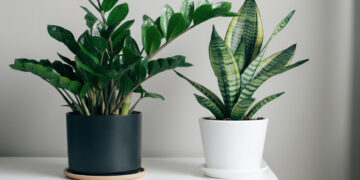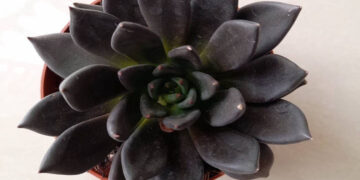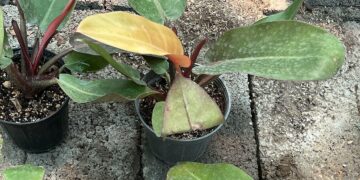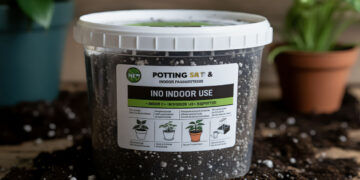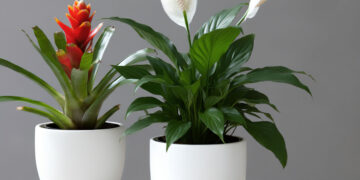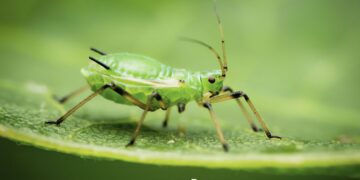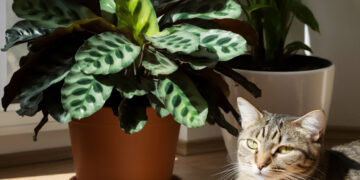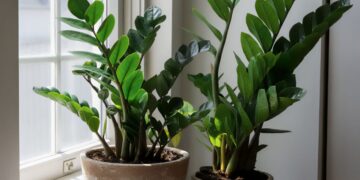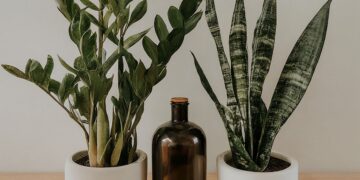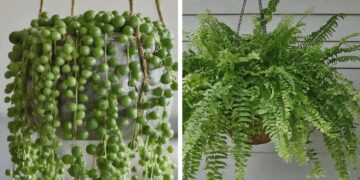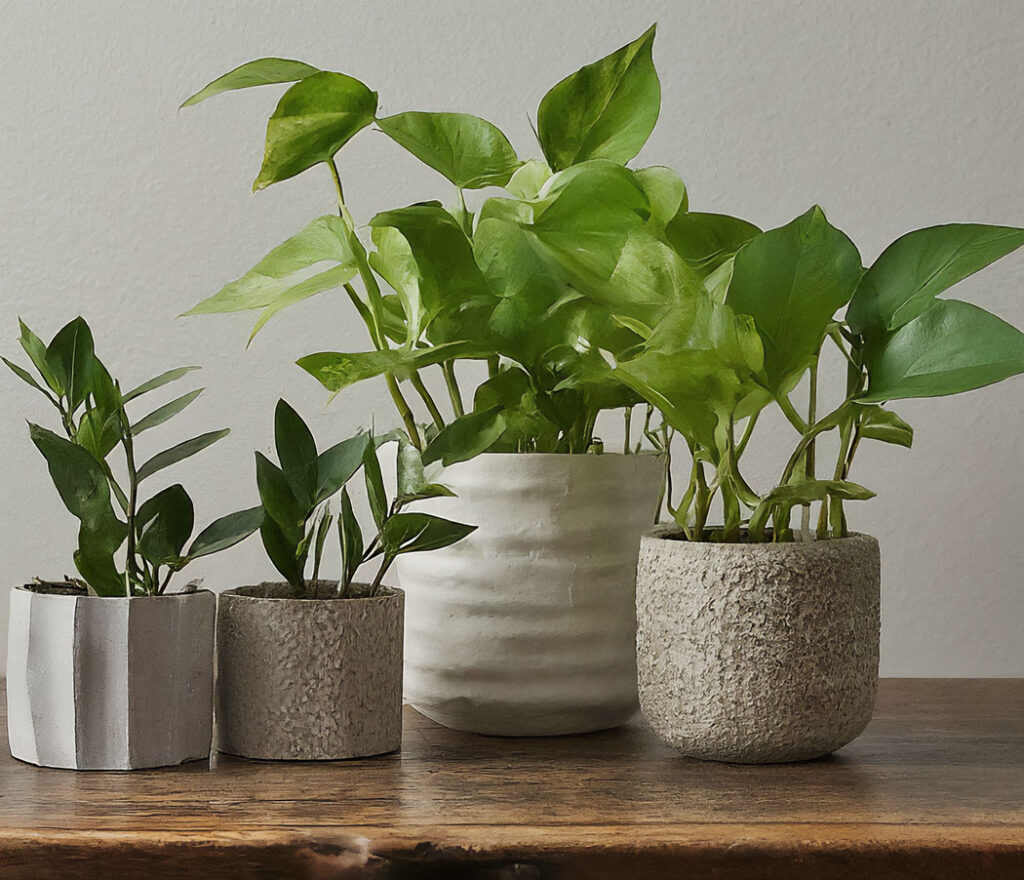
As the saying goes, every coin has two sides. If you are looking for the best houseplants for health, it is better to know that they can be beneficial as well as harmful. Here, I will introduce you to 16 houseplants with their merits and demerits to create a friendly environment at home.
1. Aloe Vera
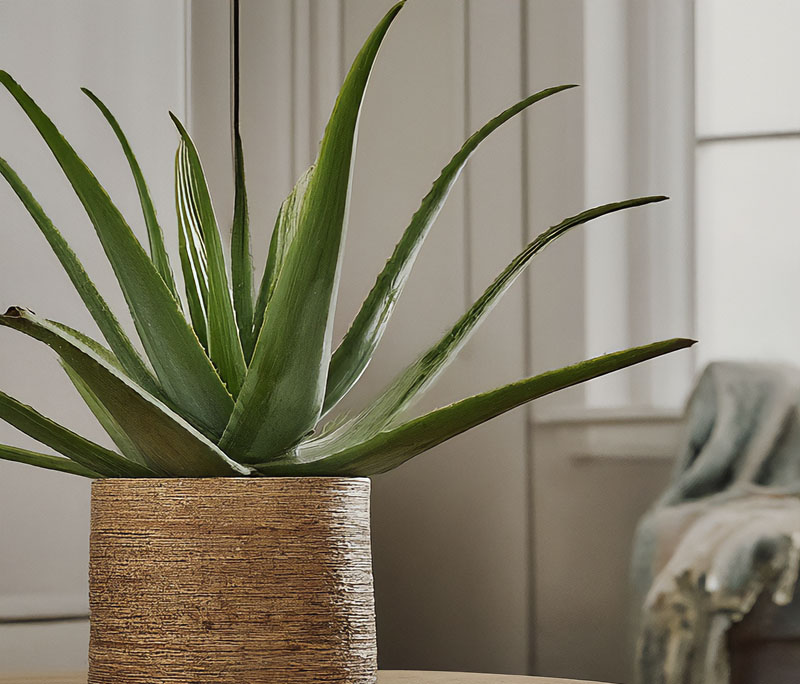
If I recall correctly, I bought aloe vera because I heard it purifies the air and removes toxins like formaldehyde; then I figured out that Aloe vera is one of the best houseplants for health. It has medicinal properties, and you can use it to treat burns and skin irritations.
Warning sign
My concern is for those who have pets like me. Aloe vera sap is poisonous to cats, dogs, and humans, and if eaten, it causes nausea and digestive problems.
2. Bamboo Palm (Chamaedorea seifrizii)

This houseplant reduces benzene, formaldehyde, and trichloroethylene from the air and increases humidity so you can breathe better.
This houseplant is the best for health, animals, and humans without sensitivity.
3. Boston Fern (Nephrolepis exaltata)

If you have dry skin, put a Boston Fern in the living room. This best indoor plant for health increases humidity. Moreover, removing formaldehyde, xylene, and carbon dioxide from the air helps our respiratory health, and we enjoy fresh air.
No need to worry. It is entirely safe and pet-friendly.
4. Snake Plant (Sansevieria)

According to studies provided by NASA, the Snake plant is one of the best houseplants for health and air purification. Not only does it remove pollutants like benzene, formaldehyde, and trichloroethylene, but it also releases oxygen instead of carbon dioxide at night.
This significantly improves the quality of the air in the house. I recommend this houseplant for your bedroom because it will help you sleep well.
Warning sign
Be careful that your cat or dog is away from this houseplant. It has saponin, which, if eaten, causes nausea, vomiting, and diarrhea.
5. Spider Plant (Chlorophytum comosum)

One of the reasons why I consider a spider plant among the best houseplants for health is that it filters the air well and deletes toxins such as particulate matter, formaldehyde, nitrogen dioxide, carbon oxide, ozone, carbon monoxide, xylene, benzene, toluene, cigarette smoke, and ammonia.
Warning sign
I did not see any harm in this popular houseplant, but if your pet eats it, it will probably have a mild digestive problem.
6. Peace Lily (Spathiphyllum)
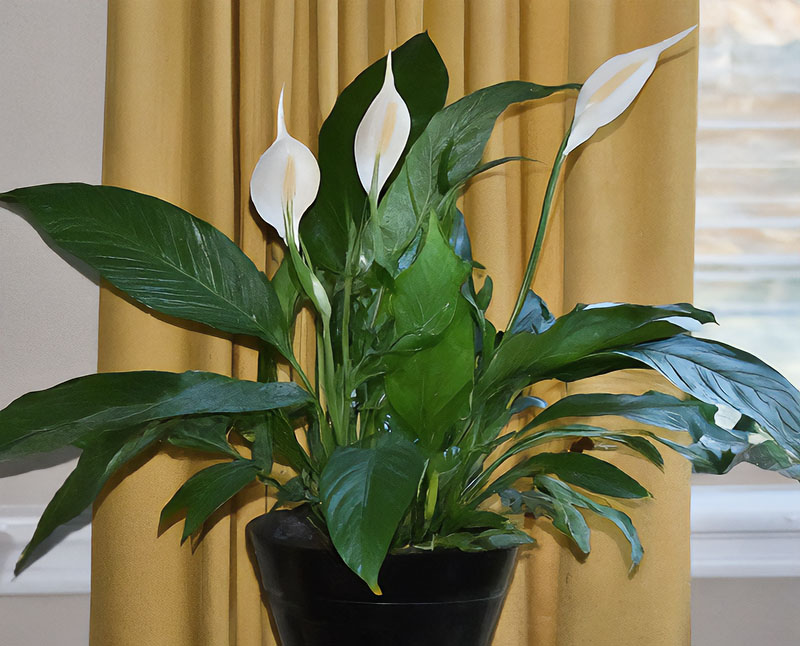
If you have a Peace lily at home, your respiratory system is guaranteed to be healthy. This plant moisturizes the air, and there is no ammonia, formaldehyde, or benzene where peace lilies grow.
Warning sign
If you notice that your pet’s mouth and throat are irritated and swollen, it must have eaten peace lilies. This houseplant has calcium oxalate crystals, poisonous to dogs and cats.
7. English Ivy (Hedera helix)

NASA research has shown that English Ivies are incredibly effective in removing benzene compared to other houseplants and have no competitors. In addition, they reduce formaldehyde, TCE, airborne mold, and fecal matter particles in the air. So, you can rely on ivy as the best indoor plant for health.
Warning sign
Avoid eating and touching this houseplant. It is toxic to both humans and animals, irritating the skin and causing severe digestive problems.
8. Areca Palm (Dypsis lutescens)

It quickly relieves you from formaldehyde, xylene, and toluene. By increasing the humidity, it helps the health of your skin and respiratory system. It is usually kept in a dry climate to control humidity.
This houseplant does not cause any problems for animals and humans.
9. Rubber Plant (Ficus elastica)

This houseplant is definitely one of the best houseplants for health because it improves air quality by removing formaldehyde and increases the oxygen level with its broad and large leaves.
Warning sign
Be careful; the sap of this houseplant can irritate your skin and eyes and cause digestive problems in your pet if eaten.
10. Dracaena
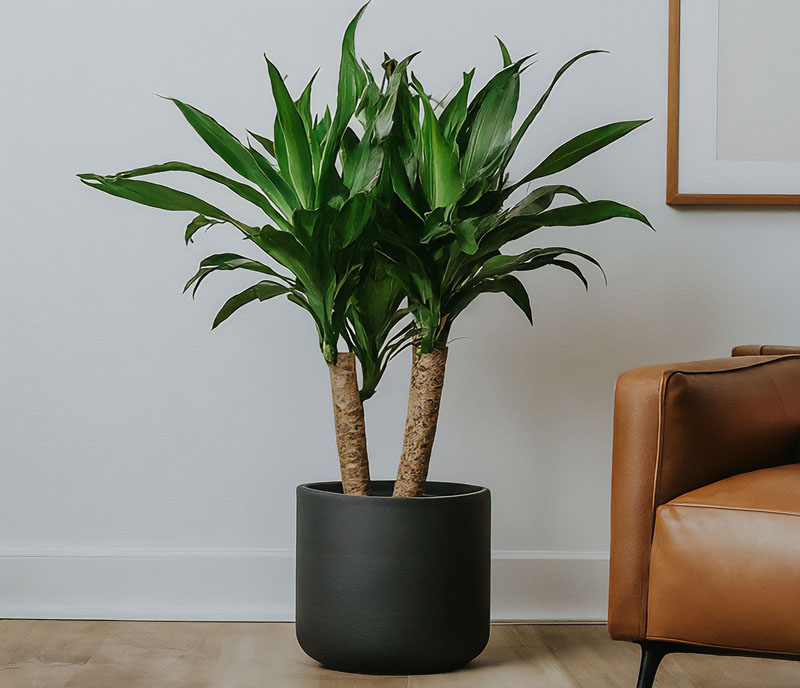
Since NASA has suggested three different types of Dracaenas to remove benzene, formaldehyde, and TCE from the air, this houseplant is the best for health.
Warning sign
Like other houseplants, Dracaena’s main problem is with pets. If eaten, the saponin causes vomiting, salivation, and loss of appetite.
11. Philodendron

Leave the filtration of formaldehyde and other toxins to Philodendron to improve the house’s air quality uniquely. This plant can be found in any home because it is easy houseplant and best for health.
Warning sign
It contains calcium oxalate crystals, and it is toxic houseplant to cats and dogs, and causes irritation and swelling of the mouth and throat.
12. Chinese Evergreen (Aglaonema)
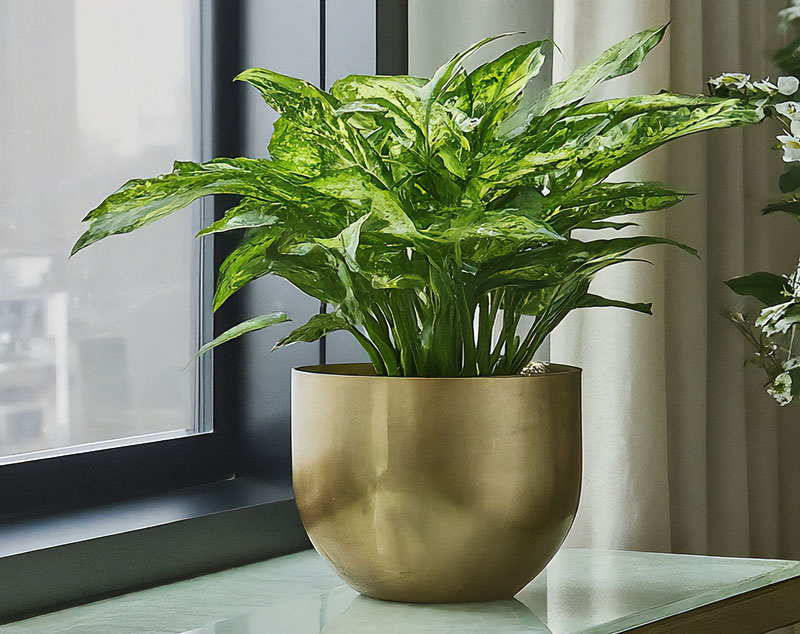
You can’t have a Chinese Evergreen in the house, and poisons like formaldehyde and benzene are in the air. Don’t worry; you won’t have breathing problems with it. I call it a versatile plant because it can handle everything to improve the indoor air.
Warning sign
Because it contains calcium oxalate crystals, please keep it away from animals to ensure their health is not endangered.
13. Weeping Fig (Ficus benjamina)

Suppose you have a Weeping Fig in your living room. In that case, you can be sure of the absence of toxins like formaldehyde, xylene, and toluene in the air and enjoy a refreshing environment.
Warning sign
The sap of Weeping Figs Can cause skin and digestive problems in humans and animals. Wear gloves and keep away from pets.
14. Pothos (Epipremnum aureum)

Golden Pothos is one of the plants NASA has introduced as the best air purifiers. It reduces formaldehyde and TCE and removes 73% of benzene from the air. Having a Golden Pothos at home is an offer you can’t refuse.
Warning sign
Calcium oxalate crystals in this houseplant are harmful for pets to eat.
15. Fiddle Leaf Fig (Ficus lyrata)
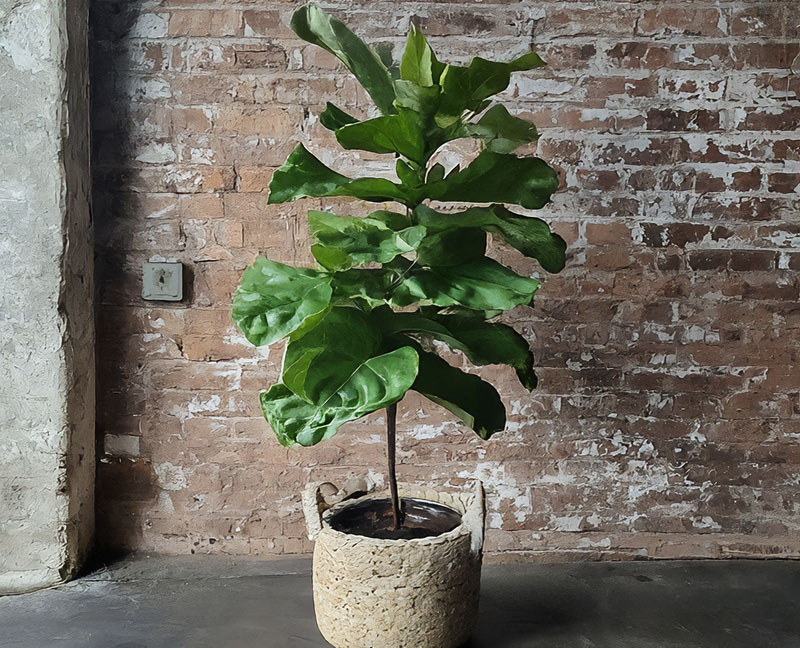
There are three primary reasons for growing this houseplant in your home:
First, It catches someone’s eye.Second, Its large leaves release more oxygen, and third, It removes toxins in the air.
Warning sign
Do not underestimate the poisonous sap and skin and digestive problems.
16. ZZ Plant (Zamioculcas zamiifolia)
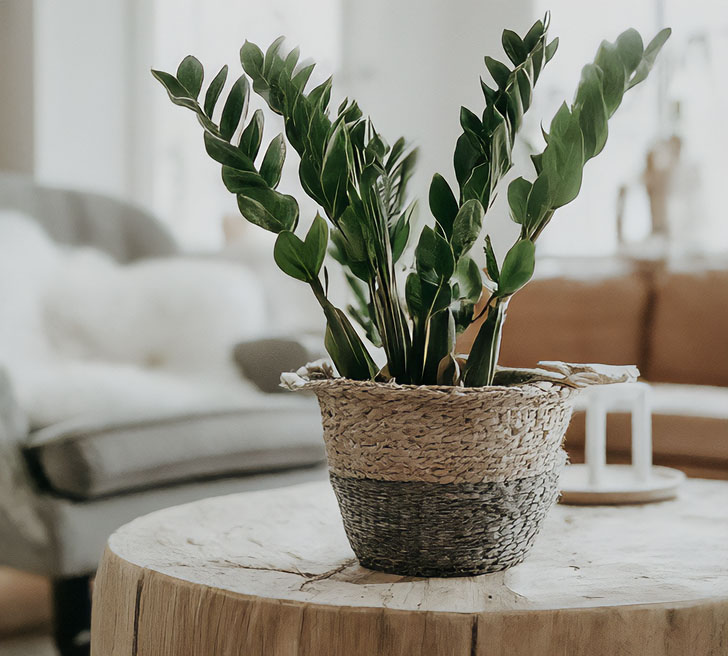
If you want your home environment to improve, buy a ZZ plant and care for it to get rid of toxins such as xylene, toluene, and benzene from the air.
Warning sign
Eating ZZ plants can cause swelling and irritation of the mouth and throat of pets such as dogs and cats because they contain calcium oxalate crystals.
sources:

